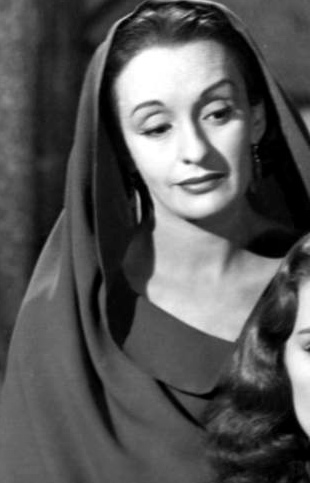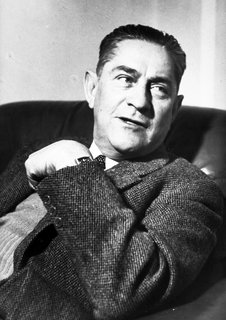Related Research Articles

Miguel Zacarías Nogaim was a Mexican film director, producer, and writer.

Carlos Cores was an Argentine film actor, and film director.

Roque Funes was the most prolific Argentine cinematographer in the history of the Cinema of Argentina whose career spanned over 40 years of cinema.

Manuel Esperón González was a Mexican songwriter and composer. Along with the famous Mexican author Ernesto Cortazar, Esperón cowrote many songs for Mexican films, including "¡Ay, Jalisco, no te rajes!" for the 1941 film of the same name, "Cocula" for El Peñón de las Ánimas (1943), and "Amor con amor se paga" for Hay un niño en su futuro (1952). Other Esperón compositions have become Latin standards such as "Yo soy mexicano", "Noche plateada" and "No volveré", which was used in the first episode of the 2001 soap opera El juego de la vida. Among other performers, Pedro Infante, Los Panchos, and Jorge Negrete have made his songs well-known. His fame in the US derives from when his song The Three Caballeros was used in the Disney film The Three Caballeros (1945).
Arturo Soto Rangel was a Mexican film, television, and stage actor. Soto was best known for appearing in over 250 Mexican films. He appeared in one American movie, The Treasure of the Sierra Madre, which won three Academy Awards and starred Humphrey Bogart, Walter Huston, Tim Holt, Bruce Bennett, and many other successful actors. Soto last appeared on television in 1963, where he starred in Voy de gallo.

Guadalupe Bracho Pérez-Gavilán, known professionally as Andrea Palma, was a Mexican actress. She was considered the first major female star of the Mexican cinema after her role in the Mexican film La Mujer del Puerto (1934).

Fernando de Fuentes Carrau was a Mexican film director, considered a pioneer in the film industry worldwide. He is perhaps best known for directing the films El prisionero trece, El compadre Mendoza, and Vámonos con Pancho Villa, all part of his Revolution Trilogy on the Mexican Revolution.
Santiago Eduardo Urueta Sierra, more commonly known as Chano Urueta, was a Mexican film director, producer, screenwriter, and actor.
Carlos Orellana Martínez was a Mexican actor, film director and screenwriter.
María Esther Buschiazzo (1889–1971) was an Argentine actress. Since the beginning of the century he began making works by great Argentine authors such as Florencio Sánchez. In 1912 he made his film debut in a silent film directed by Mario Gallo called Tierra Baja, in which Pablo Podestá and Elías Alippi also acted.
Alberto Terrones was an Argentine film and theater actor, with an extensive filmography.
David Silva Guglielmeti was a Mexican actor and occasional producer of the Golden Age of Mexican cinema. In his career, he appeared in more than 100 films and won an Ariel Award for his leading role in the film Champion Without a Crown (1946).
Miguel Inclán (1897–1956) was a Mexican film actor. He became known for his villainous roles during the Golden Age of Mexican cinema. His sister was the actress Lupe Inclán.
Víctor Manuel Mendoza (1913–1995) was a Mexican film actor.
José W. Bustos was a Mexican film editor who began his career during the Golden Age of Mexican cinema. His brother Jorge Bustos was also an editor.

Manuel Dondé was a Mexican film actor. He frequently played villains during his long film career.
Eduardo Arozamena Lira was a Mexican actor. His nickname was "El Nanche Arozamena".
Hernán Rogelio Vera Pavía was a Mexican actor known for usually playing short, small roles, usually as a bartender, during the Golden Age of Mexican cinema.
Armando Velasco was an Ecuadorian-born Mexican actor who worked on the Golden Age of Mexican cinema, on films such as The Saint Who Forged a Country (1942), Historia de un gran amor (1942), and You Had To Be a Gypsy (1953).
Florencio Castelló was a Spanish actor, known for participating in the Golden Age of Mexican cinema, acting alongside personalities of Mexican cinema such as Pedro Infante and Cantinflas. He usually played roles of a Spaniard with an Andalusian accent.